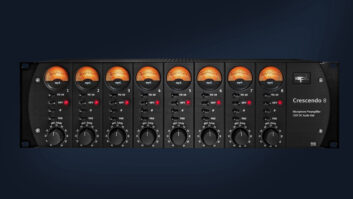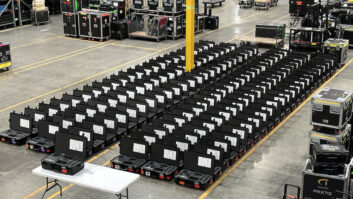
We need to talk about money. OK, perhaps not dollars and pounds, but I think we do need to talk more about how we make it.
Let’s face it, most of us reading this article enjoy a good chat about gear. I’m a freelance producer and engineer, so I do admittedly spend most of my time hunkered down in my studio on my own, but when I do get a chance to get out and chat to colleagues and contemporaries, it’s not long before the conversation will turn to gear we love or hate. The latest compressor plug-in that looks suspiciously like an 1176 (“but is it as good as a real one?”) or a new DAW bug that’s giving us all headaches, or old war stories about lining up 24-track tape machines (just to give you an idea of how old I am!). While this is all good fun, the most constructive conversations that we could have would be more about how we earn our money than how we’re planning on spending it.
Dom Morley: The Psychology of Mixing
Us freelancers are all entrepreneurs—whether we like it or not—so let’s embrace that and not be afraid of more business-focused dialogue. We can also be more honest about downtime (we all get it) and what constructive activities can be used to fill that time.
So, I’m going to get the ball rolling by discussing some things that I have found useful in negotiating more than a decade of freelancing.
GETTING BOOKED AND GETTING PAID
This is all the same process for me. I don’t have a manager (that’s another conversation), so I have to keep my involvement in administration light and efficient. If I’m talking to a client about booking in some work and we get to discussing dates, I say that I need 50% of the project cost to book any dates in. If this hasn’t been paid, then there’s a risk that the dates they want will go to someone else that does pay this deposit. This is also non-refundable as I’ll be turning down other clients and other work on the days that have been booked. I stress to them that this is the only way I can keep all the balls I’m juggling in the air, and I just don’t have the capacity to deal with multiple holds. I’ve not yet found any client who has a problem with this approach. I suspect if I did, then this person wasn’t really serious about booking time anyway, otherwise the fact they pay 50% up front wouldn’t be an issue.
I then ask for the final 50% once the final mixes are done, just before delivery to mastering. I know this is sometimes a hard thing to control, but here’s what I do and it works for me.
For a long time, I’ve mixed into a small amount of limiting. It’s the last thing on my mix bus chain and I put it on when I start automating faders. This means the dynamics of my mixes are mostly retained through mastering and there tend to be no big surprises at that stage. I make sure that clients know that the mixes that I send through for approval have this limiting on and so are not suitable to send to mastering. Once the final mix is approved, I print one without the limiter and that’s what the mastering engineer receives. After a while, I realized that this process has a useful business angle, too. I now only send through the unlimited version when I have the final 50% fee in my account. So, the client receives full quality WAVs to approve throughout the mixing process, but if anyone wants to pull a fast one and disappear before paying the final 50%, then they know they don’t have the right files. Again, I don’t have a manager, so I make it clear that I don’t have the capacity to negotiate around this. It’s a simple rule I have, and it’s really not asking too much.
MAKING THE BEST USE OF DOWNTIME
Although I’ve been fairly fortunate with steady streams of work I, like everyone else, have occasional periods of downtime. This can be as mentally challenging as they are financially, so it’s important to fill them with meaningful endeavors.
What you choose to do really comes down to your skill set, studio availability and interests. I fill downtime by making sample packs. I have a wall of modular synths (it’s not an addiction, I can stop any time I want…) and some nice recording kit in my studio, so it’s easy for me to get some great synth sounds and package them up in a way that people want to buy.
I’m also involved in education, with lots of guest lecturing around the country and abroad, as well as a part-time gig tutoring the Masters course in music production at a leading UK conservatoire. On top of that, I run a website at themixconsultancy.com that offers in-depth mixing advice tailored precisely to a client’s needs (not sure about a mix you’ve done – send it in and I give discrete advice on improvements that you can make before you send it on to a client).
As you can probably guess, when I do get some downtime from making records, it’s very quickly filled with one or more of these activities. They not only keep me busy, but all bring in money and I love the variety of work.
I hope these points have been of some use, but more than that, I hope it inspires a conversation next time you are chatting with some other freelancers. In the meantime, I’d also recommend you check out a podcast called The Six-Figure Home Studio which discusses all things studio business related, and passionately avoids talking about gear. And if there’s any ideas you think I’d like, then please get in touch!
Dom Morley is a Grammy Award winning engineer and producer. Over a 20-year career, he has worked with many artists, including Adele, Sting and Amy Winehouse, and producers including Phil Spector, Mark Ronson and Tony Visconti. Morley can be reached at www.themixconsultancy.com







